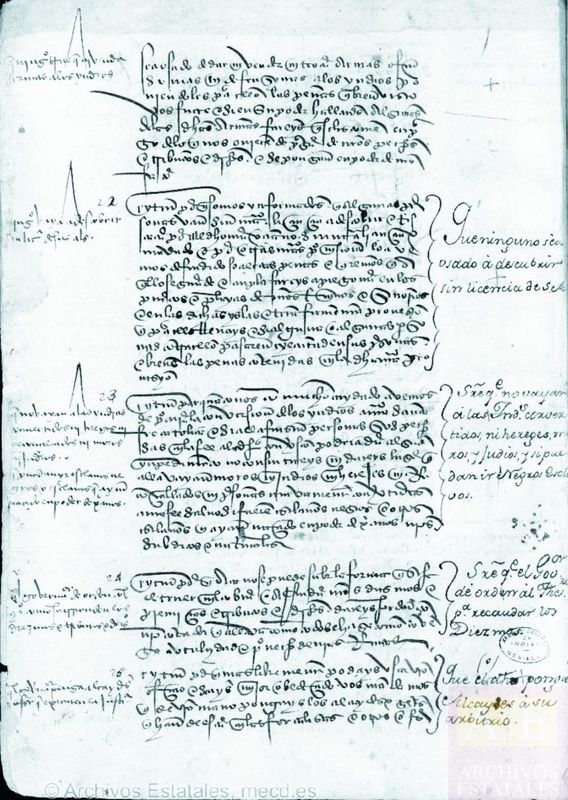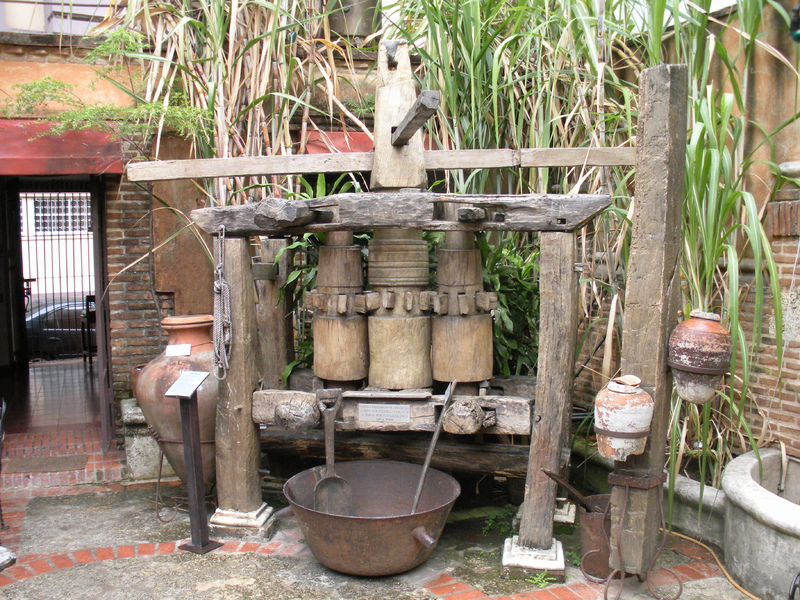Slave trade authorized since 1501

ESPAÑA. MINISTERIO DE CULTURA, Archivo General de Indias,
ES.41091.AGI/23.15.412//INDIFERENTE,418,L.1,F.39R-42R
TRANSCRIPTION
ENGLISH TRANSLATION
__________________________________________________________________________________________
__________________________________________________________________________________________
About not allowing converts or heretics, Moors and Jews to go to the indies and allowing Black slaves to go
Commentary
This document constitutes the earliest recorded mention of Black people in a royal communication in the history of the colonial Americas. After designating Nicolás de Ovando as the governor of La Española in 1501, Spain’s monarchs gave him a set of written instructions as to how he should govern the colony. Instruction 23 referred to the monarchs’ concern for converting the local Amerindians to Catholicism, and to this end, the kinds of people that should and should not be allowed to enter the territory. Amongst those prohibited were Moors, Jews, heretics and recently converted Christians. But from the latter category, one group was allowed: “Black slaves” or other slaves born “under the power of Christians [who are] subjects and natives or ours.” With this strategy, the Crown combined its professed devotion to the spread of Catholicism and its status as the only religion allowed with their interest in securing an enslaved labor force.
 Sixteenth-Century La Española: Glimpses of the First Blacks in the Early Colonial Americas
Sixteenth-Century La Española: Glimpses of the First Blacks in the Early Colonial Americas 